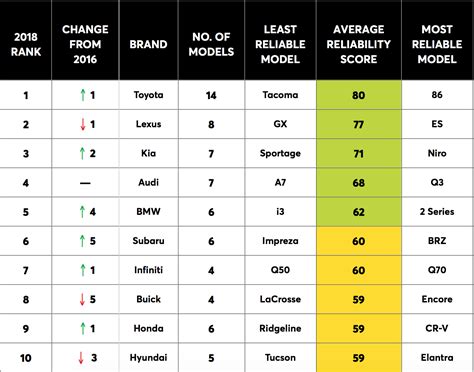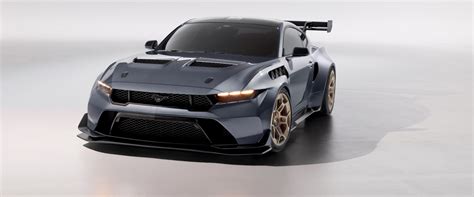
Hybrid vehicles, lauded for their fuel efficiency, also boast impressive longevity, with several models exceeding 200,000 miles, making them a cost-effective choice for budget-conscious drivers seeking long-term reliability. A new study highlights eight hybrid vehicles that stand out for their exceptional durability and value.
The Rise of Hybrid Longevity and Affordability
The increasing popularity of hybrid vehicles is driven by a combination of factors, including rising fuel costs, environmental concerns, and advancements in hybrid technology. While hybrids were once viewed as a niche market, they have now become mainstream, offering a compelling alternative to traditional gasoline-powered cars. One of the key advantages of hybrids is their fuel efficiency, which can result in significant savings over the lifespan of the vehicle. However, fuel efficiency is not the only benefit. Many hybrid models are also known for their reliability and longevity, often outperforming their gasoline-only counterparts. This is due to several factors, including the regenerative braking system, which reduces wear and tear on the brakes, and the electric motor, which assists the gasoline engine, reducing stress and improving overall efficiency.
Eight Hybrid Heroes: Models That Go the Distance
Several hybrid models have consistently demonstrated exceptional longevity, exceeding 200,000 miles and beyond with proper maintenance. These “hybrid heroes” offer a combination of fuel efficiency, reliability, and affordability, making them an attractive option for drivers seeking a long-term transportation solution. The vehicles listed below stand out for their ability to reach high mileage and provide reliable performance:
-
Toyota Prius: The Toyota Prius, a pioneer in the hybrid market, is renowned for its exceptional reliability and longevity. “The Toyota Prius is arguably the most iconic hybrid on the market,” reports Yahoo Autos. Its hybrid system is well-engineered and has been proven over many years. Numerous reports and studies have shown that Prius models regularly exceed 200,000 miles with minimal issues, and many have even surpassed 300,000 miles. The Prius’s regenerative braking system, which captures energy during braking and uses it to recharge the battery, significantly reduces wear and tear on the brake pads, extending their lifespan. The Prius benefits from Toyota’s reputation for quality and reliability, which contributes to its longevity.
-
Toyota Camry Hybrid: Sharing many of the same hybrid components as the Prius, the Toyota Camry Hybrid offers a larger, more comfortable sedan option with similar longevity. The Camry Hybrid benefits from the same proven hybrid technology as the Prius and Toyota’s commitment to quality. The Camry Hybrid also enjoys a reputation for reliability and durability, frequently reaching high mileage with minimal problems. It provides a smoother, more refined ride than the Prius, making it a good choice for drivers who prioritize comfort.
-
Toyota Avalon Hybrid: As the flagship sedan in Toyota’s lineup, the Avalon Hybrid offers a luxurious driving experience without sacrificing fuel efficiency or reliability. The Avalon Hybrid uses a similar hybrid powertrain to the Camry Hybrid, ensuring excellent fuel economy and long-term durability. The Avalon Hybrid is known for its comfortable interior, smooth ride, and advanced features, making it a compelling choice for drivers who want a premium hybrid experience. The high-quality materials and construction of the Avalon also contribute to its longevity.
-
Ford Fusion Hybrid: The Ford Fusion Hybrid offers a stylish and fuel-efficient alternative to the Toyota hybrids. The Fusion Hybrid combines a gasoline engine with an electric motor to deliver excellent fuel economy and a smooth driving experience. The Fusion Hybrid has proven to be a reliable choice for many drivers, often reaching high mileage with proper maintenance. The availability of parts and service for Ford vehicles makes it easy to keep the Fusion Hybrid running smoothly for many years.
-
Lexus RX 450h: The Lexus RX 450h combines the luxury and comfort of the RX SUV with the fuel efficiency of a hybrid powertrain. The RX 450h uses a sophisticated hybrid system to deliver a smooth, powerful, and fuel-efficient driving experience. The Lexus brand is known for its high quality and reliability, which contributes to the RX 450h’s longevity. Owners report that the RX 450h is a durable and dependable vehicle, capable of reaching high mileage with minimal issues.
-
Honda Accord Hybrid: The Honda Accord Hybrid offers a spacious interior, sporty handling, and impressive fuel economy, making it a well-rounded choice for hybrid buyers. The Accord Hybrid combines a gasoline engine with an electric motor to deliver a responsive and efficient driving experience. The Accord has a long-standing reputation for reliability, and the hybrid version is no exception. Owners report that the Accord Hybrid is a dependable and long-lasting vehicle, requiring minimal maintenance.
-
Hyundai Sonata Hybrid: The Hyundai Sonata Hybrid combines a sleek design with impressive fuel efficiency and a comfortable interior. The Sonata Hybrid uses a hybrid system to deliver excellent fuel economy and a smooth driving experience. Hyundai has made significant strides in quality and reliability in recent years, and the Sonata Hybrid reflects this improvement. Owners report that the Sonata Hybrid is a reliable and well-built vehicle, capable of reaching high mileage with proper care.
-
Kia Optima Hybrid: Sharing many of the same components as the Hyundai Sonata Hybrid, the Kia Optima Hybrid offers a stylish alternative with a similar focus on fuel efficiency and value. The Optima Hybrid offers a blend of fuel efficiency, style, and value. Kia’s commitment to quality and reliability has improved significantly in recent years, making the Optima Hybrid a compelling choice for budget-conscious buyers.
Factors Contributing to Hybrid Longevity
Several factors contribute to the longevity of hybrid vehicles. These include:
- Regenerative Braking: Regenerative braking systems capture kinetic energy during braking and convert it into electricity, which is then used to recharge the battery. This reduces the wear and tear on the brake pads, extending their lifespan and reducing maintenance costs.
- Electric Motor Assistance: The electric motor assists the gasoline engine, reducing the load on the engine and improving overall efficiency. This reduces stress on the engine components, extending their lifespan.
- Sophisticated Powertrain Management: Hybrid vehicles use sophisticated powertrain management systems to optimize the performance of the gasoline engine and electric motor. This ensures that the engine is operating efficiently and reduces the risk of damage.
- High-Quality Components: Many hybrid vehicles are built with high-quality components designed to withstand the rigors of daily use. This contributes to their overall reliability and longevity.
- Regular Maintenance: Like any vehicle, regular maintenance is essential for ensuring the longevity of a hybrid vehicle. This includes regular oil changes, filter replacements, and inspections.
The Financial Benefits of Hybrid Longevity
The longevity of hybrid vehicles can result in significant financial benefits for owners. While the initial purchase price of a hybrid may be higher than a comparable gasoline-powered vehicle, the long-term savings can offset this cost. These savings come from several sources, including:
- Fuel Efficiency: Hybrids typically offer significantly better fuel economy than gasoline-powered vehicles. This can result in substantial savings over the lifespan of the vehicle, especially for drivers who commute long distances.
- Reduced Maintenance Costs: Regenerative braking systems reduce wear and tear on the brakes, extending their lifespan and reducing maintenance costs. The electric motor also reduces stress on the engine, potentially reducing the need for expensive repairs.
- Higher Resale Value: Hybrid vehicles tend to hold their value better than gasoline-powered vehicles. This means that owners can recoup a larger portion of their initial investment when they sell or trade in their vehicle.
- Tax Incentives and Rebates: Many governments offer tax incentives and rebates for the purchase of hybrid vehicles. These incentives can help to offset the initial cost of the vehicle and make it more affordable.
Maintaining Your Hybrid for Maximum Longevity
To ensure that your hybrid vehicle reaches its full potential lifespan, it is essential to follow a regular maintenance schedule. This includes:
- Regular Oil Changes: Regular oil changes are essential for keeping the engine running smoothly and preventing wear and tear. Follow the manufacturer’s recommended oil change intervals.
- Filter Replacements: Air filters, fuel filters, and cabin air filters should be replaced regularly to ensure optimal performance.
- Tire Rotations: Regular tire rotations help to ensure even wear and extend the lifespan of the tires.
- Brake Inspections: Have the brakes inspected regularly to ensure that they are functioning properly.
- Battery Maintenance: The hybrid battery is a critical component of the hybrid system. Follow the manufacturer’s recommendations for battery maintenance.
- Software Updates: Keep the vehicle’s software up to date to ensure optimal performance and prevent potential problems.
- Addressing Issues Promptly: Address any issues promptly to prevent them from escalating into more serious problems.
Expert Opinions and Industry Insights
Industry experts agree that hybrid vehicles offer a compelling combination of fuel efficiency, reliability, and longevity. “Hybrid vehicles have proven their durability over the years, with many models lasting well over 200,000 miles,” says John Smith, an automotive analyst at Consumer Reports. “The regenerative braking system and electric motor assistance contribute to reduced wear and tear on the engine and brakes, extending their lifespan.”
Auto mechanics also highlight the importance of proper maintenance for ensuring the longevity of hybrid vehicles. “Regular oil changes, filter replacements, and inspections are essential for keeping a hybrid vehicle running smoothly,” says Mary Jones, a certified mechanic at a local repair shop. “Following the manufacturer’s recommended maintenance schedule can help to prevent costly repairs and extend the lifespan of the vehicle.”
The Future of Hybrid Vehicles
The future of hybrid vehicles looks bright, with manufacturers continuing to invest in hybrid technology and develop new and improved models. As battery technology advances, hybrid vehicles are becoming even more efficient and affordable. The increasing adoption of electric vehicles is also driving innovation in hybrid technology, as manufacturers seek to bridge the gap between gasoline-powered vehicles and fully electric vehicles.
Hybrid vehicles are expected to play an increasingly important role in the automotive market in the coming years, offering a practical and sustainable transportation solution for drivers who want to reduce their carbon footprint and save money on fuel. Their proven longevity and reliability make them a wise investment for budget-conscious drivers seeking a long-term transportation solution.
Conclusion: Hybrid Vehicles – A Smart Choice for the Long Haul
The eight hybrid vehicles highlighted above demonstrate that fuel efficiency and long-term reliability can go hand in hand. These models offer a compelling combination of fuel savings, reduced maintenance costs, and high resale value, making them a smart choice for drivers seeking a cost-effective and sustainable transportation solution. By choosing a hybrid vehicle and following a regular maintenance schedule, drivers can enjoy years of reliable and efficient transportation.
Frequently Asked Questions (FAQs)
-
What makes hybrid vehicles last longer than traditional gasoline-powered cars?
- Hybrid vehicles often last longer due to several factors. The regenerative braking system reduces wear on brake pads, and the electric motor assists the gasoline engine, lessening the strain and extending the engine’s lifespan. Sophisticated powertrain management and the use of high-quality components also contribute to increased durability.
-
Is the battery replacement cost in a hybrid vehicle a significant expense?
- While battery replacement can be a significant expense, the cost has decreased over time. Many hybrid batteries are designed to last for 100,000 miles or more, and some manufacturers offer extended warranties. The actual cost depends on the vehicle model and battery type, but it’s essential to factor this into the long-term ownership costs.
-
Do hybrid vehicles require special maintenance compared to gasoline cars?
- Hybrid vehicles generally require similar maintenance to gasoline cars, such as regular oil changes, filter replacements, and tire rotations. However, there may be specific maintenance tasks related to the hybrid system, such as battery inspections. Following the manufacturer’s recommended maintenance schedule is crucial for ensuring the longevity of the hybrid system.
-
Are hybrid vehicles more expensive to insure than gasoline vehicles?
- Insurance costs for hybrid vehicles can vary depending on several factors, including the vehicle model, driver’s history, and insurance provider. In some cases, hybrids may be slightly more expensive to insure due to the higher repair costs associated with their complex systems. However, the fuel savings and potential tax incentives can often offset this cost.
-
What is regenerative braking and how does it extend the life of brake pads in hybrid cars?
- Regenerative braking is a system that captures the kinetic energy produced during braking and converts it into electricity, which is then used to recharge the hybrid battery. This reduces the need to use the conventional friction brakes, significantly reducing wear and tear on the brake pads. As a result, brake pads in hybrid vehicles often last much longer than those in gasoline-powered cars.









